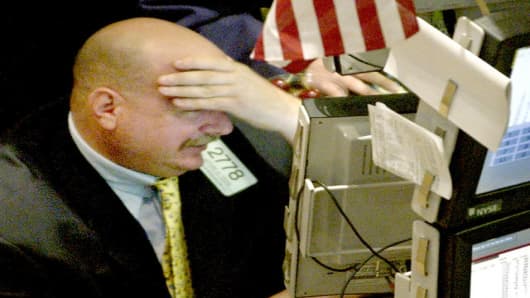The Charlotte, N.C.-based bank has said it expects losses of 12 percent on that portfolio, which it classifies as "distressed," but some analysts expect that to increase. Wachovia got most of the loans when it bought California lender Golden West Financial for $24.2 billion in 2006.
Meanwhile, Cleveland-based National City has said it might face charge-offs on about 20 percent of a roughly $17.4 billion portfolio of businesses it has exited, including broker-sold home equity, subprime and residential construction loans. This portfolio represents about 15 percent of the bank's loans.
"If you use JPMorgan's assumptions that they use to mark WaMu's books to market, National City is likely either a candidate for FDIC seizure, or it's a candidate for a dilutive capital raise," said James Ellman, a portfolio manager at Seacliff Capital in San Francisco. He declined to disclose whether he has a position in National City.
Thomas Richlovsky, who is National City's treasurer and will become interim chief financial officer next week, described as "ludicrous" and "ridiculous" the idea that the FDIC might seize any part of the bank.
He said National City has reduced the $17.4 billion loan portfolio by $1 billion to $1.5 billion since June. National City raised $7 billion of capital earlier this year.
"JPMorgan did a smart thing, writing down the amount to the lowest number it could justify because that gives it a clean slate going forward," Richlovsky said. "We have the capital to manage through the losses under severe stress scenarios. We have the time and the capital, and do not need to do any fire sales. The point of the capital raise was to deal with these situations."


